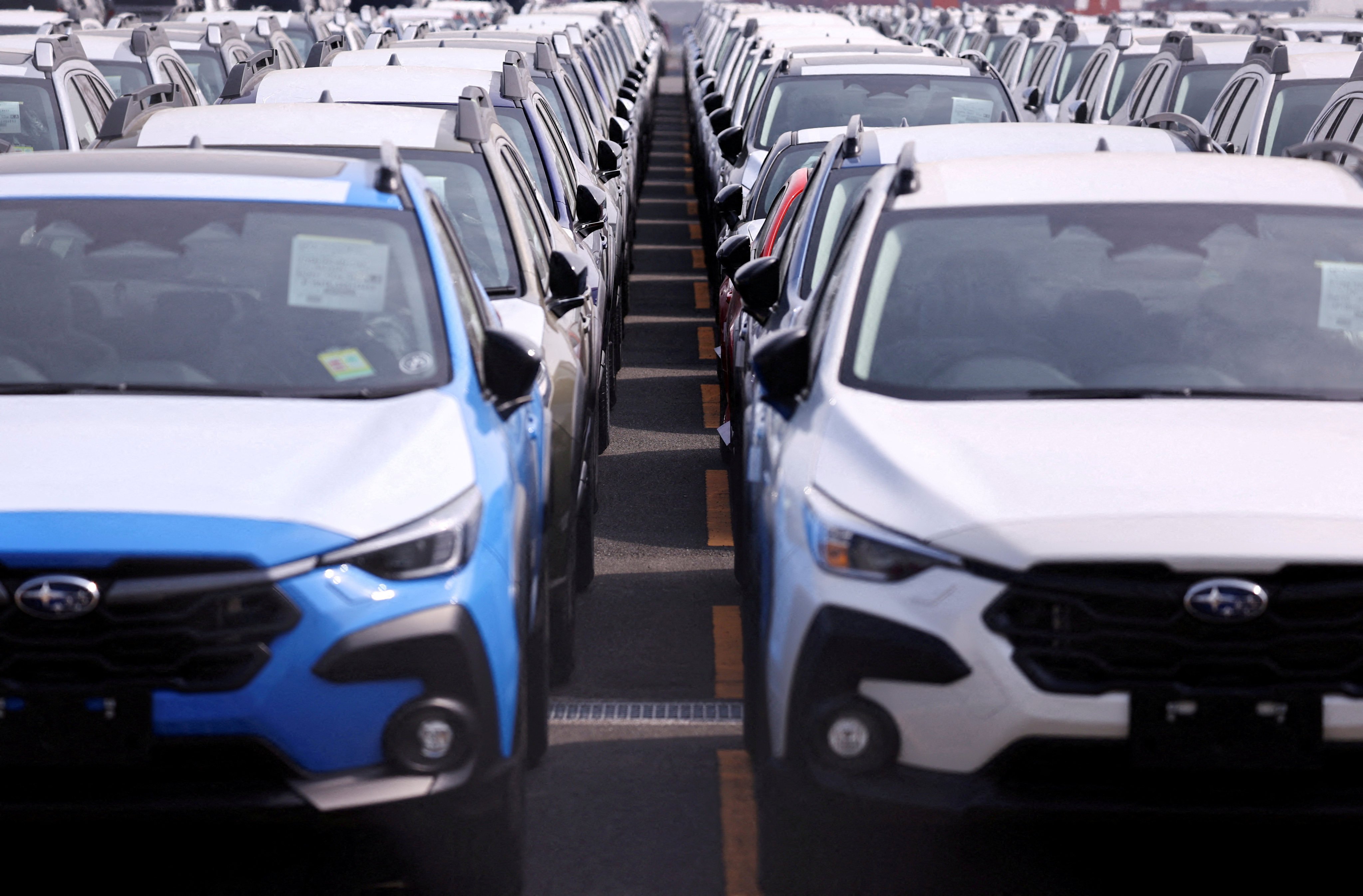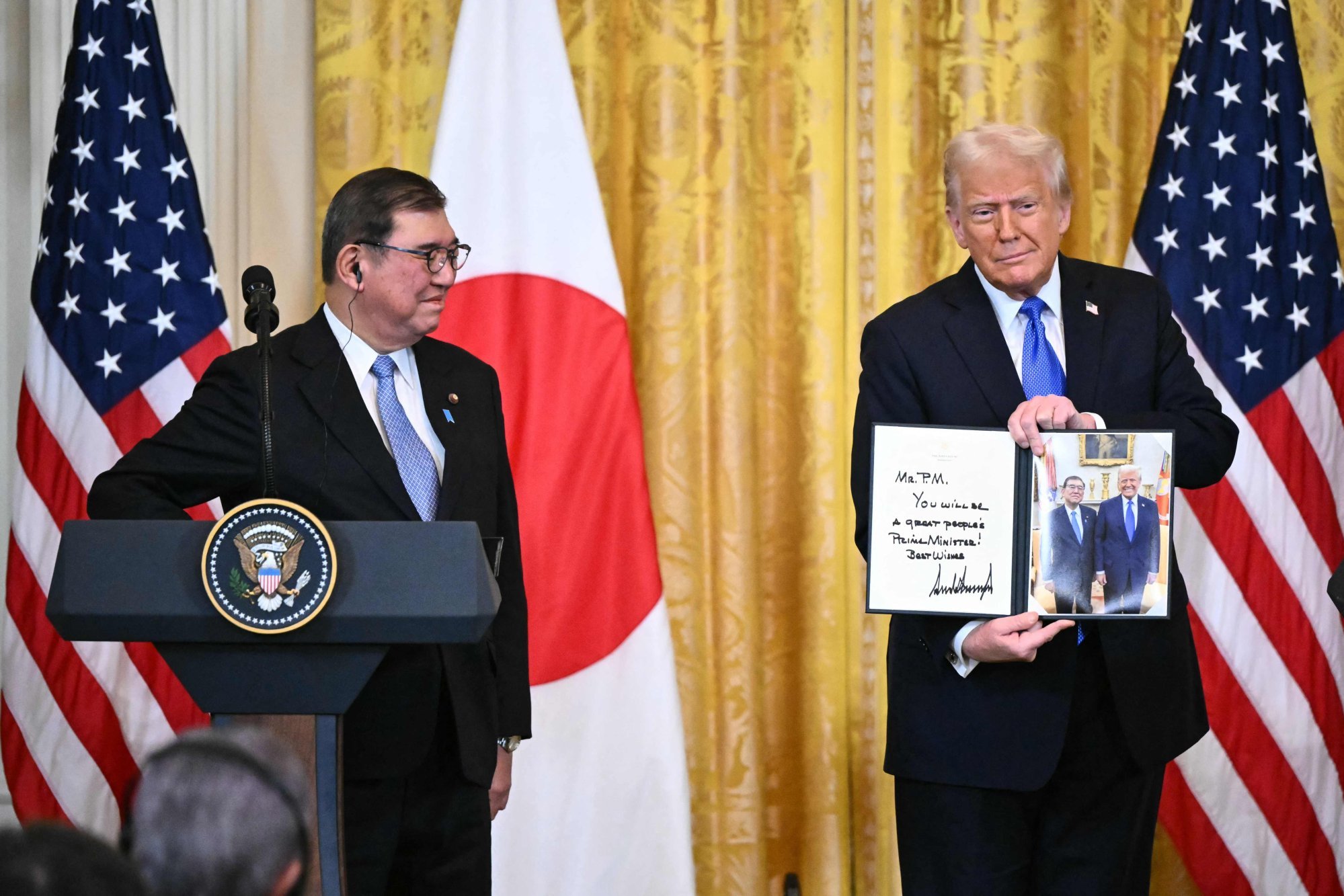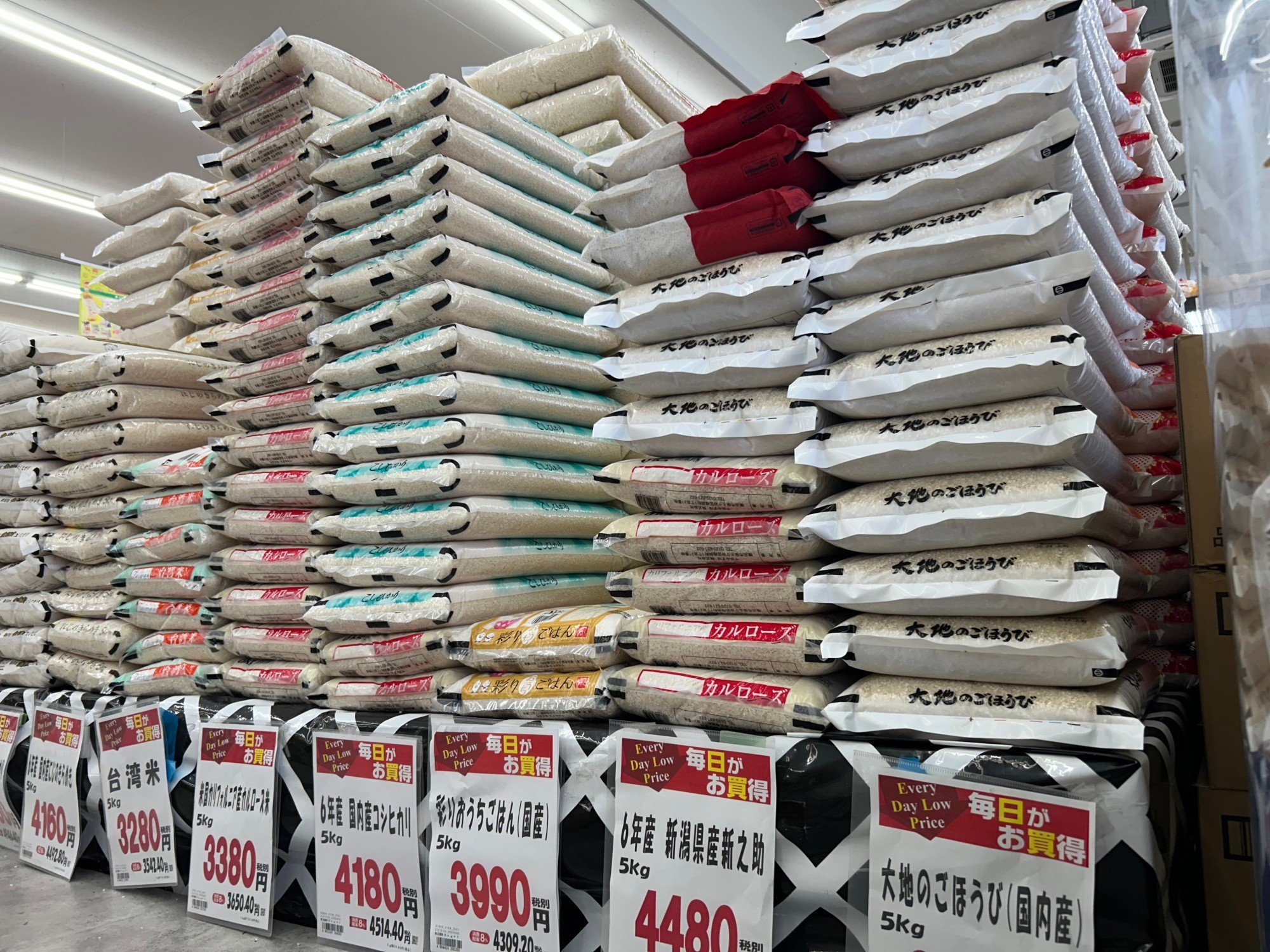Japan fears US-UK trade deal’s impact on tariff talks ahead of election
Washington is retaining the 10 per cent baseline tariff on UK imports, whereas Japan is aiming for zero levy for its exports to the US

The new trade deal between the United States and the United Kingdom has alarmed Japanese officials, with analysts saying it could set an unfavourable precedent for Washington’s talks with its other allies, just as Tokyo faces domestic pressure to shield the automobile and agriculture sectors ahead of a crucial election.
Prime Minister Shigeru Ishiba appeared on Fuji Television on Sunday to stress that Japan would pursue the elimination of tariffs in its trade talks with Washington. Referring to the US-UK agreement, he said it represented “one model” for trade agreements, “but we should aim for 0 per cent tariffs”.
Under the agreement unveiled last Thursday, duties on British car exports will be lowered while the US is retaining the 10 per cent baseline tariff on UK imports. It is the first such deal since Washington started negotiations with several countries that US President Donald Trump had earlier threatened with high tariffs, which are set to take effect in July following a 90-day pause.
Trump said on Friday that the 10 per cent tariff would remain the baseline for future deals, although exemptions might be granted to countries offering more favourable trade terms to Washington.
Currently, a 25 per cent levy applies to Japanese automobile exports to the US. A so-called “reciprocal tariff” of 24 per cent may also be imposed on other Japanese goods.
Robert Ward, Japan chair at the International Institute for Strategic Studies, said that automobile exports remained one of the most intractable issues in trade talks between Tokyo and Washington.
Japan had exported over a million cars to the US annually, while automobile production and its related supply chains were an important pillar of Japan’s economy, Ward said.
London’s acceptance of Washington’s 10 per cent tariff on the first 100,000 British cars shipped to the US and higher tariffs thereafter has “alarmed” Japan as it suggests “a US benchmark for negotiation with others such as Japan”, according to Ward.

“The ultimate deal will involve some trade-offs on agricultural products and energy, and probably more Japanese investment in the US. The economic and security relationship with the US is too important for Japan to start a trade war,” Ward said, adding that Japan was a big importer of fuels and food from the US.
“This also weakens Japan’s hand. Replacing US items would take time and in the interim any interruption in supply could cripple Japan’s economy,” Ward said.
Sayuri Shirai, an economics professor at Japan’s Keio University, said it was much easier for Washington and London to reach a deal as the US enjoyed a surplus in the bilateral trade while the UK exported only 100,000 cars to the US last year.
Agricultural products were a “politically very sensitive” topic due to Japan’s upper house election due by July, Shirai said.
Since Japan was experiencing a rice shortage and rising rice prices, Tokyo could expand its import quota in this sector, she added.
“But [Japan] needs to carefully design the import quota as its self-sufficiency ratio on agriculture is low and the government wants to protect farmers,” Shirai said.
The self-sufficiency ratio indicates the extent to which a country relies on its own production, with a higher ratio indicating greater self-sufficiency.

Japan currently imports about 770,000 tons of tariff-free rice annually from the US under a minimum access quota.
As part of a long-standing policy to maintain stable prices and protect domestic farmers, Japan has been reluctant to open up its rice market to foreign competition.
Recent high rice prices in Japan are said to be the result of hot weather causing a decline in rice yields, record inbound tourism and heightened hoarding due to fears of a major earthquake along the Nankai Trough.
Japan is also expected to buy more gas from the US but this will take time given the long-term nature of such contracts, according to Shirai.
Stephen Nagy, a professor of international studies at Japan’s International Christian University, said Japan had much more “political capital” compared with the UK when negotiating a trade deal with the US.
Apart from being a critical regional defence partner of the US in confronting China, Japan had technological prowess and was twice the size of the “badly underperforming post-Brexit UK economy”, Nagy said.
Under the US-Japan defence treaty, over 50,000 American military personnel are stationed in Japan. In March, the US approved a US$200-million deal to supply Japan with equipment and services for the development of a Japanese hypersonic missile.
“Tokyo feels it can resist Trump’s trade tactics based on its comparative advantages to protect sectors of the economy that are most vulnerable,” Nagy said. It would highlight these factors to “argue and resist Trump’s tariffs and pressure to open up the economy”, he added.
As for the US, Trump could trumpet Japan’s potential gas purchases and increased investments as “a symbolic win for his Maga supporters”, Nagy said, referring to the president’s “Make America Great Again” slogan.
Japan’s tariff negotiations were complicated by flagging support for Ishiba and his ruling Liberal Democratic Party, Ward said.
Last month, the public approval rating for Ishiba’s cabinet fell to 23.1 per cent, the lowest since he took office in October last year, according to a Jiji Press opinion poll.
“The opposition is using the negotiations to attack the government, citing weakness in the face of US bullying. Japan may thus be seeking to play for time and not force a decision until after July,” Ward said.